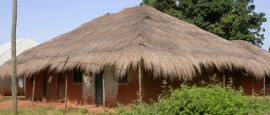Guinea-Bissau Health Care and Vaccinations
| Title | Special precautions |
|---|---|
| Diphtheria |
Yes |
| Hepatitis A |
Yes |
| Malaria |
Yes |
| Rabies |
Sometimes |
| Tetanus |
Yes |
| Typhoid |
Yes |
| Yellow Fever |
Yes* |
Medical facilities are extremely limited and medicines often unavailable. Doctors and hospitals often expect immediate cash payment for health services. Health insurance covering repatriation is essential. Most doctors work in the public service and have their private clinic in the afternoon and evening. There are few specialists. Several foreign aid agencies have their own doctor and medical facilities, including the French Mission and the Swedish Embassy. There is also a UN clinic. All these clinics will receive visitors in an emergency, but none have surgical facilities.
All water should be regarded as being potentially contaminated. Water used for drinking, brushing teeth or making ice should have first been boiled or otherwise sterilised. Only eat well-cooked meat and fish. Vegetables should be cooked and fruit peeled.
Diarrhoeal diseases are common. Bilharzia (schistosomiasis) is present; avoid swimming and paddling in fresh water. Hepatitis E is widespread. Hepatitis B is hyperendemic; vaccination is sometimes recommended. Tuberculosis occurs. Epidemics of meningococcal disease may occur, particularly in the savannah areas and between December and June. Rabies is present. For those at high risk, vaccination before arrival should be considered. If you are bitten, seek medical advice without delay.
Do you have any Feedback about this page?
© 2026 Columbus Travel Media Ltd. All rights reserved. No part of this site may be reproduced without our written permission, click here for information on Columbus Content Solutions.








 You know where
You know where